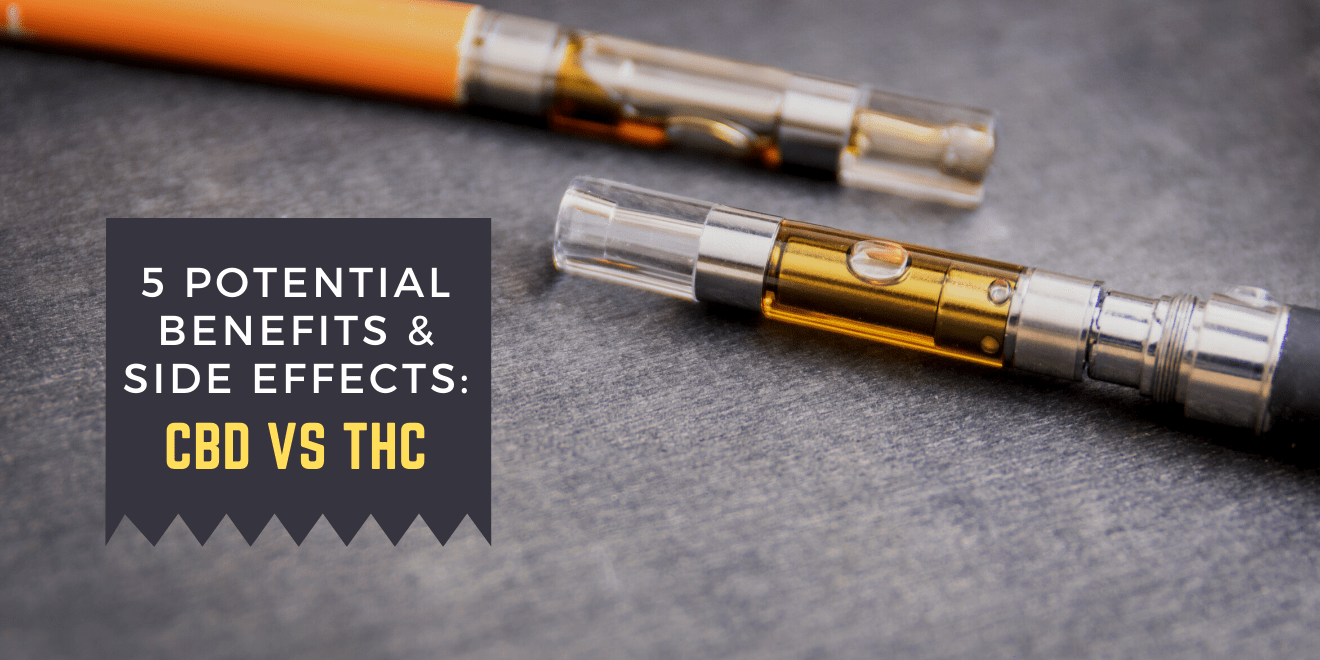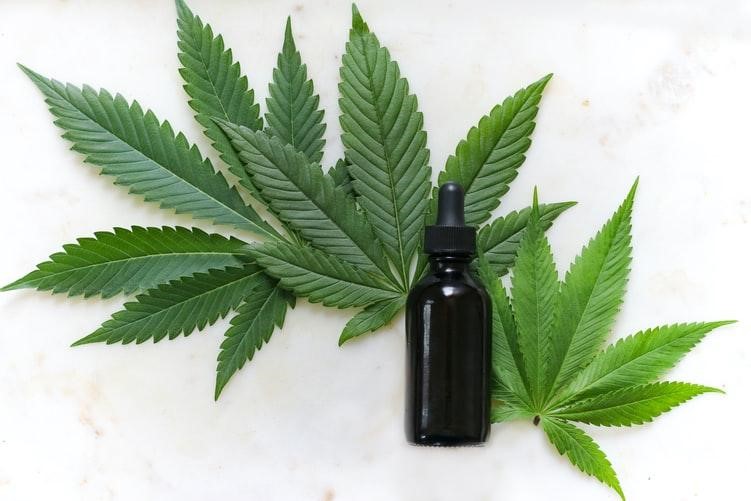CBD Vs. THC: 5 Potential Benefits And Side Effects

As the legalization of cannabis products increases globally, their use keeps on increasing. At the center of the growing popularity are cannabis' two main compounds: cannabidiol ( CBD) and tetrahydrocannabinol ( THC). Both of these compounds are found in the cannabis plant, and many people confuse them.
These compounds are distinct in different ways, even though they share certain similarities. One thing that stands out is that CBD is not psychoactive. THC is the one that gives cannabis its psychoactive effects. That means users can't get high by taking CBD alone.
However, both of these interact with your body's cannabinoids to release various health benefits. You can tap into these benefits by getting quality products online from a trustworthy cannabis store.

We will cover more about their benefits and possible side effects to understand these two compounds better.
CBD and THC have different chemical structures but can be used to treat various health conditions. While many people prefer CBD due to its non-psychoactive nature, THC is more effective in treating certain conditions.
CBD vs. THC: What are The Therapeutic Benefits?
Here are some of the illnesses that THC and CBD Treat
Pain
Cannabis is a common pain relief alternative. It helps in the treatment of chronic pain arising from conditions like arthritis or migraines. THC is believed to improve some cannabinoid receptors in the body. This includes the nerve cells as well as those inside the immune system. It soothes the sensation of pain.

Studies also show CBD is beneficial in chronic pain treatment. Research in 2018 indicated that CBD helps relieve illnesses such as fibromyalgia, neuropathic pain, and cancer pain.
Nausea
A significant benefit of cannabis is its treatment of nausea in Aids and cancer patients. Its believed cannabis may be helpful because of its effects on the brain. Cannabinoid receptors are present in the brain, the interaction of THC with these receptors eases nausea and vomiting symptoms in patients.
Research shows that CBD has antiemetic potential as well, and is just as powerful as THC. The investigators suggest that CBD increases the levels of anandamide and indirectly activates the CB1 receptors in the brain. Since anandamide and THC have similar structures, they produce similar effects in the body.
Inflammation
According to a review , cannabinoids impact the endocannabinoid system (ECS) in many ways. Since cannabinoids from cannabis are similar to those produced naturally in the body, they can boost immunity.
Cannabis has been used to treat chronic inflammation for centuries. And since THC and CBD are the most abundant cannabinoids in the cannabis plant, they are believed to be behind cannabis effects.
THC and CBD impact the immune system triggering the anti-inflammatory response. Studies show THC has a novel-anti-inflammatory agent. Similar research on CBD also reveals that it helps in reducing inflammation in various ways, which makes it effective in treating many diseases characterized by inflammation.
Anxiety
Anxiety is a common mental illness that can negatively affect your day to day life. Although anxiety can quickly fade in most cases, it can become chronic and hard to treat with medication. Cannabis, particularly CBD or low does of THC, can help in managing anxiety symptoms.

According to a study, CBD helped people suffering from social anxiety disorder (SAD). During the study, the participants were given doses of CBD. After some time, they reported lower anxiety levels. Moreover, top quality cannabis seeds in 2020 are also effective in dealing with other disorders related to anxiety, such as stress and post-traumatic stress disorder (PTSD).
Insomnia
Cannabis produces relaxation and drowsiness effects that can help to promote sleep. According to a study , THC can help you fall asleep faster, and it works for people who have insomnia and those who have no trouble falling asleep.
Another study reveals that taking cannabis with high doses of THC reduced Rapid eye movement sleep (REM sleep) cycles. While REM sleep is part of good health, too much of it can cause sleep loss. Additionally, reduced REM sleep cycles mean reduced nightmares for patients with PTSD.
CBD can help people with sleep disorders, too. It helps to manage problems like pain and anxiety, which can cause loss of sleep. Research suggests that CBD enables you to fall asleep and stay asleep.
CBD vs. THC: What are the side effects?
Unlike THC, CBD is considered safe with little to no side effects. According to research , the effects associated with CBD result from its interaction with other medications. So, if you combine CBD with other drugs, you may experience side effects such as drowsiness, reduced appetite, fatigue, and dry mouth.
THC, on the other hand, is known to cause side effects such as dry mouth, increased heart rate, memory loss, slow reaction time, and red eyes. However, these side effects are temporary and can be minimized by taking low doses of THC.

Conclusion
THC and CBD come from the cannabis plant and have many therapeutic effects. As such, they can help with treating different conditions. The most significant difference between them is that CBD doesn't make the user high. CBD is safer and can be used by anyone. You can also use THC in low doses to avoid negative side effects and enjoy its health benefits.
Before buying any cannabis products, you need to understand those two main cannabinoids. You should select a product with the right THC: CBD ratio depending on the effects you want to minimize any unwanted effects.




































































































